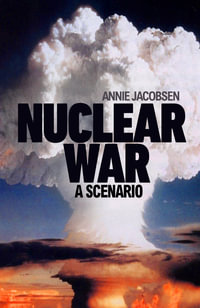Review 1 Nolan Blackwood's "Countdown to Catastrophe: Imagining a Nuclear Conflict" is an intellectually stimulating exploration into the narratives surrounding nuclear warfare, with a keen focus on South Asia. Blackwood brilliantly dissects how this region, more than any other, becomes the epicenter of apocalyptic fantasies in global discourse. His analysis is both nuanced and thought-provoking, challenging readers to reconsider the simplistic depictions of nuclear conflict often presented in media and literature. The book's exploration of geopolitical fantasies and the psychological impact of nuclear fear on global consciousness is particularly enlightening. Blackwood's work is a must-read for anyone interested in the intersections of culture, politics, and security studies.
Review 2 In "Countdown to Catastrophe," Nolan Blackwood offers a compelling investigation into the cultural narratives that shape our understanding of nuclear conflict. The book stands out for its deep dive into the reasons behind South Asia's prominent role in apocalyptic scenarios, providing a unique perspective that goes beyond the usual discussions of deterrence and destruction. Blackwood's writing is clear and engaging, making complex geopolitical and theoretical concepts accessible to a wide audience. This book is not only an academic contribution but also a cultural critique that resonates with the current global climate of fear and uncertainty. It's a fascinating read for those interested in international relations, literature, and the arts.
Review 3 Nolan Blackwood's "Countdown to Catastrophe: Imagining a Nuclear Conflict" is a timely and thought-provoking analysis of how nuclear war narratives are constructed and disseminated, with a special emphasis on South Asia. The book deftly navigates through historical and contemporary perspectives, shedding light on the often-overlooked cultural factors that influence these narratives. Blackwood's insightful critique of the media and literary portrayals of nuclear conflict challenges readers to think critically about the role of storytelling in shaping public perception. This book is an invaluable resource for scholars and general readers alike, offering a fresh perspective on a topic of enduring global importance. It's an essential addition to the discourse on nuclear politics and cultural studies.
























